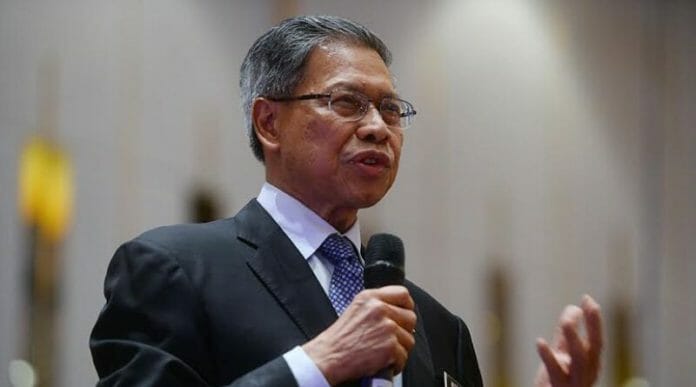A key policy initiative in fostering sustainable economic growth is increasing investments in research, development, commercialisation and innovation (R&D&C&I) as outlined in the Twelfth Malaysia Plan (RMK-12).
Expanding age-related research in Malaysia will allow us to better understand ageing populations and its effects on the economy and social support systems.
Caretaker Minister In The Prime Minister’s Department (Economy) Dato’ Sri Mustapa Mohamed said this today (Oct 17) at the National Conference on Ageing 2022 on “Sustainable Development in an Ageing Society” orgainsed by the Malaysian Research Institute on Ageing (MyAgeing), Universiti Putra Malaysia along with the Malaysian Ageing Research Network (MARN).
Mustapa, who officiated the event, said the United Nations defines a country as an ageing nation when 7 per cent or more of the population has reached the age of 65 and above. This of course happens as the world observes declining fertility and mortality rates. According to the World Health Organization (WHO), one in six people worldwide will be aged 60 or over by the year 2030.
“Longer life expectancy and lower fertility rates have become more apparent in Malaysia. By this year, the Department of Statistics (DoSM) expects 7.3 per cent of the population to have reached 65 and over. This would put us in the ageing nation category.
“Older populations are commonly associated with an added strain on government coffers as the government is expected to spend more on healthcare and pensions. If older individuals are unable to be economically active and have no savings, then income security and old-age poverty would also be significant issues that we have to address,” he said in a statement today.
Thus, focusing on “Sustainable Development in an Ageing Society” is very important to Malaysian policymakers. Ageing cuts across multiple Sustainable Development Goals such as poverty eradication, good health, gender equality, economic growth and decent work, reduced inequalities, as well as sustainable cities and communities.
While the negative effects of population ageing frequently garner significant media attention, longer lifespans and longer working lives present us with new opportunities. For instance, automation and artificial intelligence (AI) can supplement and complement labour by making physical work less taxing.
The extent to which this demographic shift impacts us will very much depend on our response. Many countries have been able to extract a demographic dividend. What this means is that initially their working-age populations would grow faster than the non-working population.
However, the benefits of this dividend are only temporary as the non-working population would grow as a country ages.
Longer life expectancies may also yield a second dividend – the longevity dividend. When a group of individuals are able to live longer and healthier lives, they can also work longer and contribute to the economy. Older adults are still very valuable economic agents. They more than make up for what they may lack in strength, through their experience and wisdom. I trust you can take my word for it.
Both inter and multidisciplinary research in this field are essential.
“Since 2002, there has been significant growth in Malaysia’s gerontology and geriatrics research. I am glad to see many ageing-related research institutes and centres in the country. These include:
● Malaysian Research Institute on Ageing (MyAgeingTM), Universiti Putra Malaysia
● Geriatric Medicine Unit, Department of Medicine, University Malaya Medical Centre
● Social Wellbeing Research Centre, Universiti Malaya
● Population Studies Unit, Universiti Malaya
● Centre for Healthy Ageing and Wellness (H-Care), Universiti Kebangsaan Malaysia
● USM-RIKEN International Centre for Ageing Science (URICAS), Universiti Sains Malaysia
● Gerontechnology Laboratory, Monash University Malaysia
● Ageing Cluster, Health Research Cluster, Sunway University
Here, the Malaysian Ageing Research Network (MARN), a growing network of local researchers that actively contributes to policy, will have a pivotal role to play in enhancing inter and multidisciplinary research.
He explained that this year’s theme for the United Nations International Day of Older Persons is “Resilience of Older Persons in a Changing World”. In his message, Secretary Guterres highlighted the importance of not only addressing the challenges of longevity, but also of unleashing its potential.
Ageing is an important development issue which requires more in[1]depth research and analysis. The cross-cutting nature of ageing issues warrant a concerted effort and a coordinated response from multiple levels, sectors and organisations.
The Economic Planning Unit (EPU) has been tasked to formulate a blueprint for an ageing nation which is expected to be completed by the end of 2023. This blueprint will provide a comprehensive roadmap and action plan to prepare ourselves for the challenges ahead.









